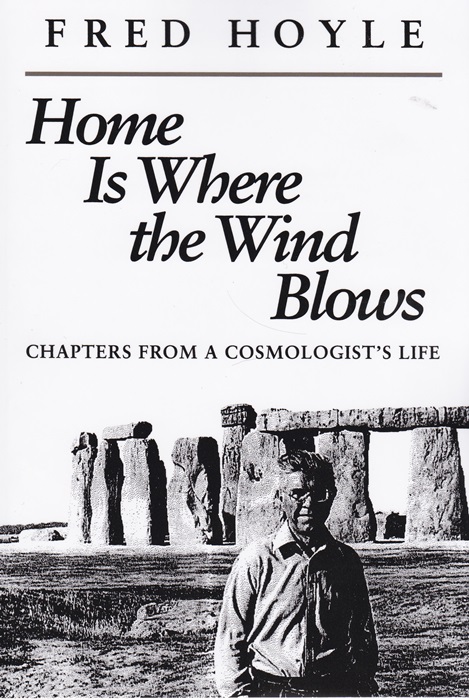
Home Is Where the Wind Blows: Chapters from a Cosmologist’s Life
One of this century's most eminent scientist offers a revealing and charming account of his life and work. Mathematician, physicist, astronomer, cosmologist and originator of the term the 'Big Bang'-Sir Fred has always been ready and able to challenge established thinking.
Summary
One of this century’s most eminent scientist offers a revealing and charming account of his life and work. Mathematician, physicist, astronomer, cosmologist and originator of the term the ‘Big Bang’-Sir Fred has always been ready and able to challenge established thinking.
Translated into Polish.
Table of Contents
Part One: 34, Primrose Lane: 1915-1939
Maps
The First World War
Forgotten Times
Coming to Grips with Who You Are
Creeping Like Snail More Slowly Than Shakespeare
A Scholarship Won from the Grip of Fate
First Journeys to Cambridge
Then the Undergrduate Seeking a Bubble Reputation in the Cannon’s Mouth
Dark Clouds Across the Sun
The Last of the Old World
Part Two: The Larger World of Science: 1939 – 1958
Maps
Sir Arthur Eddington
At War with Germany
The Nutbourne Saga
The Saga Continues
The Aftermath
The Origin of the Chemical Elements
Brave New World
An Unknown Level in Carbon-12
Steps to the Watershed
The Watershed
Part Three: Home Is Where the Wind Blows: 1959 –
A Vintage Year
Droll Stories
The Montros of Scotland
The Institute of Astronomy, but Still in Slow Stages
The Thirty-ninth Step
The Bay of the Birds
Climbing the Last Monro
A Lucky Ending
Index
Reviews
“A compelling, beautifully written, and rollicking good read it is… All working astronomers and others seeking rich and controversial insights should read this book.”
-Science
“Above all, a charming autobiography.”
-Sky & Telescope
“No one should go without this book who wants a whiff of the excitement that can come from telling friend from foe, doing science, struggling with great questions, seeing how the Universe works.”
-John Archibald Wheeler, Princeton
“Hoyle blazes bright, as human being and scientist.”
-Publishers Weekly
“Every astronomer will want to read this work, and those who do will be well rewarded.”
-Nature
